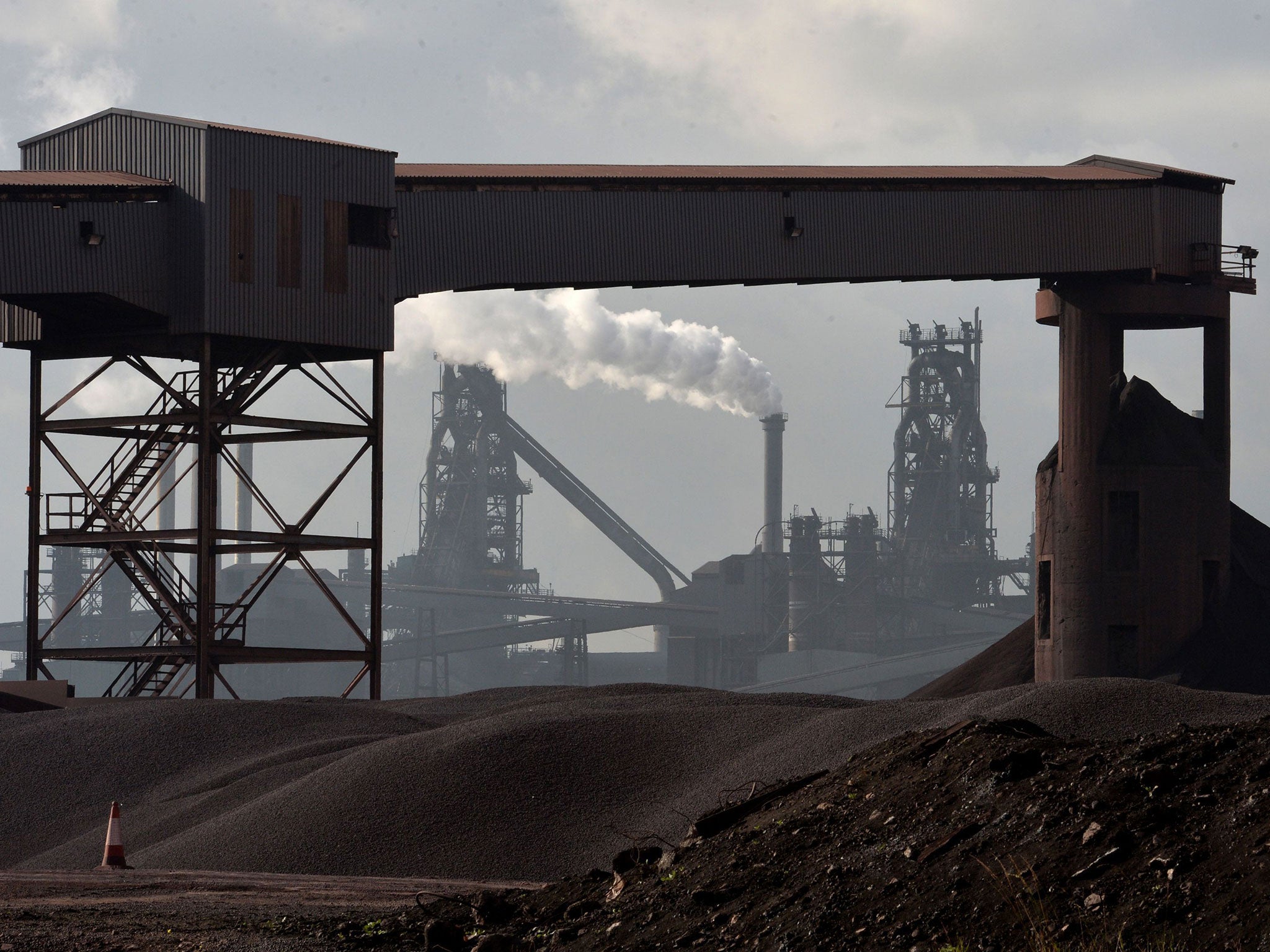Business Secretary Sajid Javid accused of 'hiding behind EU' over UK steel industry crisis
Union leaders' warning comes with workers from Britain, Belgium and France expected to demonstrate in Brussels

Your support helps us to tell the story
From reproductive rights to climate change to Big Tech, The Independent is on the ground when the story is developing. Whether it's investigating the financials of Elon Musk's pro-Trump PAC or producing our latest documentary, 'The A Word', which shines a light on the American women fighting for reproductive rights, we know how important it is to parse out the facts from the messaging.
At such a critical moment in US history, we need reporters on the ground. Your donation allows us to keep sending journalists to speak to both sides of the story.
The Independent is trusted by Americans across the entire political spectrum. And unlike many other quality news outlets, we choose not to lock Americans out of our reporting and analysis with paywalls. We believe quality journalism should be available to everyone, paid for by those who can afford it.
Your support makes all the difference.The Business Secretary, Sajid Javid, has been accused of “hiding behind” the EU rather than taking urgent action to save tens of thousands of jobs, as he leads a delegation to Brussels in a crisis meeting to save the British steel industry.
The warning, from union leaders, came as thousands of workers from the UK, Belgium and France are expected to demonstrate outside the EU’s Competitiveness Council, where Mr Javid will meet his EU counterparts and Commission officials to discuss the crisis engulfing steel industries across Europe.
“Hiding behind the EU as an excuse to do nothing will not wash with the tens of thousands of workers whose livelihoods depend on steel-making in the UK. Nothing should be off the table, including a refusal to grant China market economy status (MES) while it fails to abide by EU rules on fair trade,” the Unite union official Harish Patel said.
“Sajid Javid needs to use the opportunity to learn from his counterparts in countries such as Germany and Italy and follow their lead in developing an industrial strategy with steel at its heart. The continued failure by ministers to urgently intervene to support UK steel will push the industry into meltdown,” added Mr Patel.
The summit followed the recent announcement of the closure of the Redcar steel works and news that Indian firm Tata is cutting more than 1,200 jobs at its plant in Scunthorpe, Lincolnshire, and two further plants in Lanarkshire, Scotland. It has been revealed that Tata is also seeking a 30 per cent reduction in prices from all its suppliers. The company warned suppliers they would lose Tata’s business if they were “unable to support us”.
Angela Eagle MP, Labour’s shadow Business Secretary, said: “The steel industry is of vital strategic importance to the UK economy, but it is in full-scale crisis. The Government is sitting on its hands and has shown an unwillingness to take the strategic and decisive action required.”
Industrial experts say a drop in global demand for steel resulting in overcapacity is to blame. The World Steel Association predicts demand will fall by more than 2 per cent this year. As a result some steel-producing countries – China and Belarus in particular – have been accused of dumping artificially low-priced, subsidised products on world markets causing prices to plummet.
Globally, Chinese steel exports almost doubled to 88.6 million tons in 2014, according to the International Steel Statistics Bureau. In 2015, during the first seven months, China exported 26,000 tons to the EU per month. That is more than a 500 per cent increase in two years. Low prices mean they have captured 40 per cent of the UK steel market in two years. The UK steel industry is said to be facing a particularly hard time because of high energy costs, high business rates, a strong currency and Whitehall’s stricter interpretation of EU rules on state aid.
Stronger measures against Chinese firms dumping steel in Europe will be high on the agenda in Brussels. A spokesman for the European Steel Association (Eurofer) said the anti-dumping duties the Commission had imposed so far were the only things standing between cheap Chinese steel and an even greater loss of jobs. It is pressing for China to be denied privileged MES at the World Trade Organisation next year. “If MES was granted under current conditions, EU anti-dumping measures would no longer be effective,” a spokesman said.
Steel producers are also pressing for less rigorous CO2 emission regulations. Eurofer says the benchmarks are set at “unfeasibly” low levels, resulting in some cases of clean production in Europe being curtailed to the benefit of less sophisticated production methods elsewhere. “The steel industry supports combating man-made climate change but the EU climate policy needed to take into account the business realities of global steel production,” a Eurofer spokesman said.
A Business Department spokesman said: “The Secretary of State requested the meeting to put the difficulties felt by the steel industry both at home in the UK and across the continent high up on the European agenda.”
Join our commenting forum
Join thought-provoking conversations, follow other Independent readers and see their replies
Comments